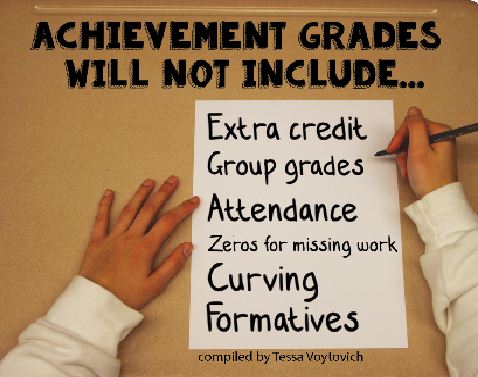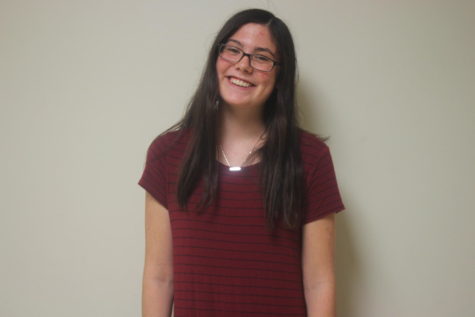School announces new grading system

Klein, Nicole (506358)
March 2, 2020
Starting the fall of 2020, LT is planning to implement a new grading system designed to address the inconsistency and inequity of the current grading system, Principal Brian Waterman said. The new system will be on an A-F scale that does not use averages, and an A will represent proficient. While teacher teams (those who teach the same course) will have the option of continuing with the average-based grading system for the first year, all teachers will be required to use the A-F scale starting in fall of 2021.
Whether a teacher team chooses to continue with the average-based system or switch to the A-F scale for next year, the team will still have to follow many of the new guidelines for grading practices.
“We don’t want to take away the art of teaching, but there should be some consistency in some of these areas to where the grading experience is similar,” Waterman said.
The grades that show up on student transcripts will be an achievement grade which will be comprised of summative assignments, such as tests and essays. Feedback on formative assignments, such as homework, will still be given, but they will not affect the achievement grade.
Student behaviors, such as preparation, participation, and interaction with other students, will not be included in the achievement grade. Instead, these will be assessed as process marks on a 1-4 scale.
“As a student, you will not be punished for not doing your homework, which is counted as preparation,” Katherine Smith, coordinator of assessment and research, said. “However, not doing your homework generally impacts your summative test. So we also want to report the behavioral piece because it usually influences the achievement piece.”
The separation of the behavioral components and the achievement grade is designed to lead to success for a wider range of students.
“I think that our current grading practice is inequitable for students that come from varying situations,” Smith said. “Whether you play three sports or you have to work a job at night, maybe you can’t get your homework in. So we’re punishing you for a situation that we don’t necessarily control by giving you a zero as opposed to giving you the ability to manage doing your homework when you can get it done.”
Each teacher is also supposed to include a personalized narrative for each student’s process marks. This process could prove to be very time intensive for teachers.
“I’m all in favor of providing process marks,” physics and astronomy teacher Kevin Murphy said. “But then you’re asking staff members to come up with unique comments for every student. You’re asking staff to do a lot of extra work at the expense of what? I can only do so many things.”
The proposed A-F scale aims to further advance equitable grading practices by taking away the average component, where one C can be detrimental to a student even if they regularly earn As. Instead of the final grade being determined by the average of grades, it is more similar to being determined by the mode of grades, Smith said.
The system also aims to put more of the weight on summative experiences at the end of the semester, Smith said.
“It’s patently ridiculous to say we’re going to average the grade that you got on September 15 and December 15 and say those are equally weighted,” assistant principal Kevin Brown said. “For one of those, we had almost no time to work and teach, and for another you’ve had an entire semester of teachers doing what they’re supposed to be doing.”
Under the new system, extra credit is not allowed. Curving is only allowed if the adjustments are determined before the test is administered. On the other hand, retake opportunities are required as an option in all courses.
“[Retakes are] an important part because learning should be about growth,” Waterman said. “If we truly believe that learning is a nonlinear process, then we have to offer students the opportunity to revise and retake assessments. That is the spirit of a growth mindset philosophy.”
Some teachers have concerns regarding the proposed retake policy, especially since the parameters are still undefined.
“I think [teachers] will also have to be careful about how we approach retakes because I don’t want that to be the new system that kids are using as a game,” Spanish teacher Lisa Plichta said.
Under the current system, many students see school as a game of points rather than a way to learn, Brown said. The administration hopes eliminating percentages will change this.
“I think [the new grading scale] could be an amazing opportunity,” Marlo Armstrong ‘22 said. “If they frame it in a way to put you in the growth mindset rather than the fixed mindset, you can work to enhance your abilities in each subject rather than just working to get it done.”
The new grading system’s goal of switching the focus from getting points to learning will also lead to better preparation for college, Brown said.
“What we know is that when we have students who are excited and motivated to learn, they’re going to be unstoppable at the college level,” Brown said.
The change of the grading system should not affect how colleges view prospective students, Scott Eggerding, director of curriculum and instruction, said. The school has heard this expressed by the University of Illinois at Urbana-Champaign as well as by the more selective University of Chicago.
However, some teachers do not believe that the new system will necessarily better prepare students for college.
“I think that [A equating to proficient] is a really low bar for this community and this high school,” Murphy said. “An A being proficient certainly would not prepare students for the rigorous work that is required in college.”
Staff meetings regarding the topic are scheduled throughout the rest of the school year. Waterman also recently met with the student council to answer questions and hear their concerns, Morgan Kearney ‘21 said.
“[Communication to students] hasn’t been great overall, and we definitely addressed that to Dr. Waterman at the meeting,” Kearney said. “But not everything is set in stone yet. So I think that’s why they haven’t reached out as much.”





















![Movie poster for '[Rec]" (2007).](https://www.lionnewspaper.com/wp-content/uploads/2023/04/rec-640x900.jpg)


